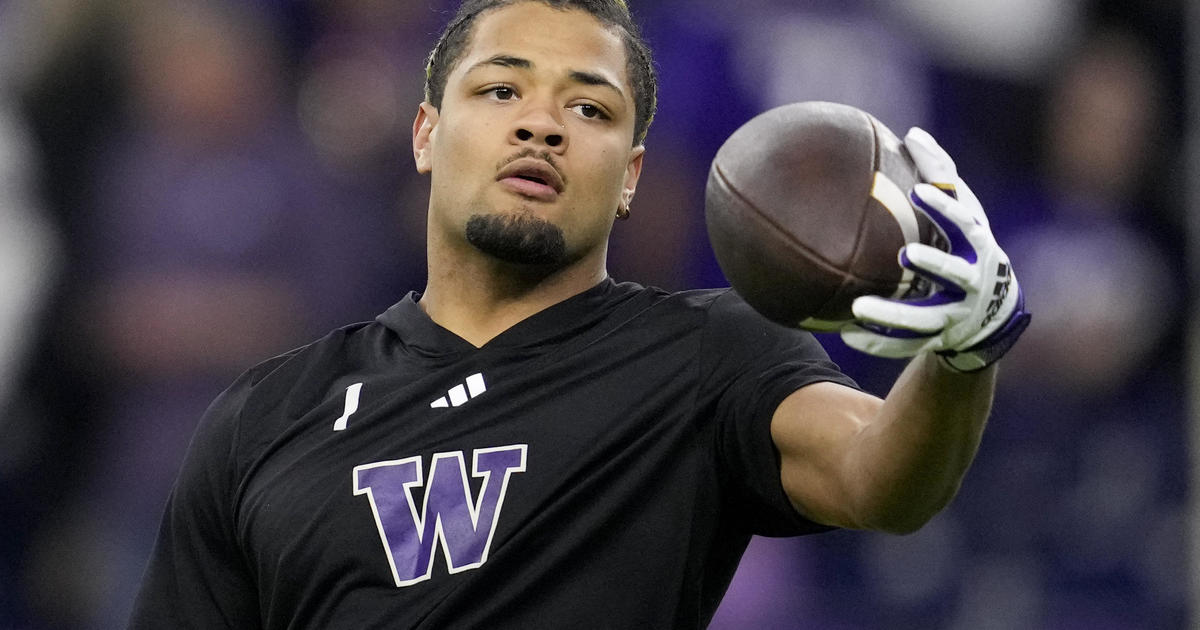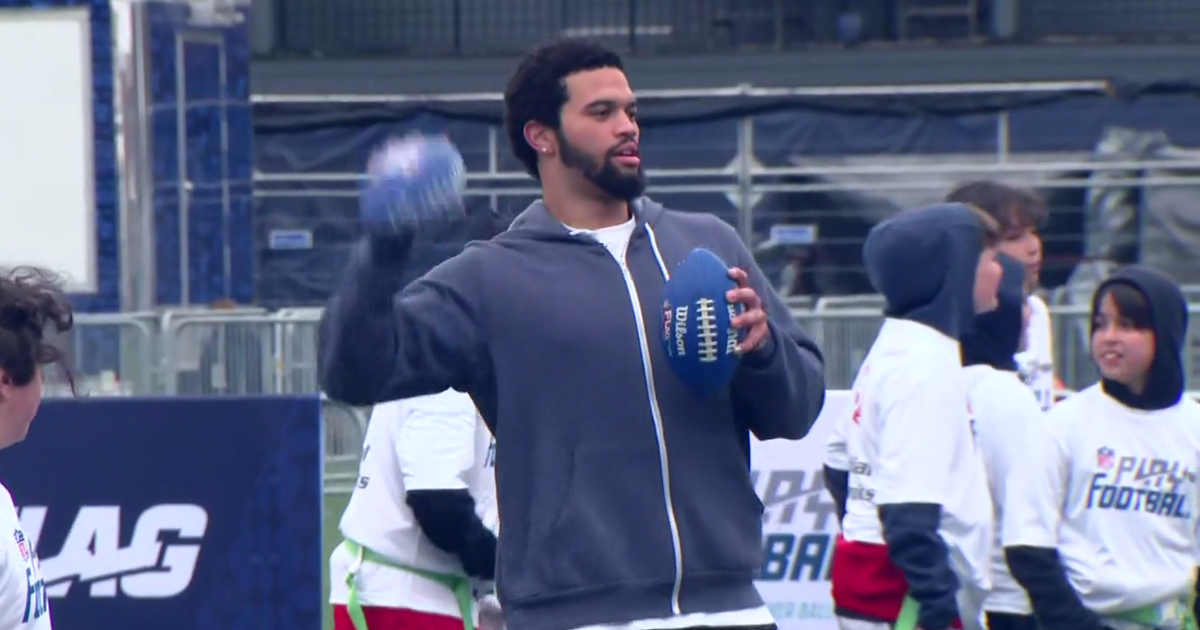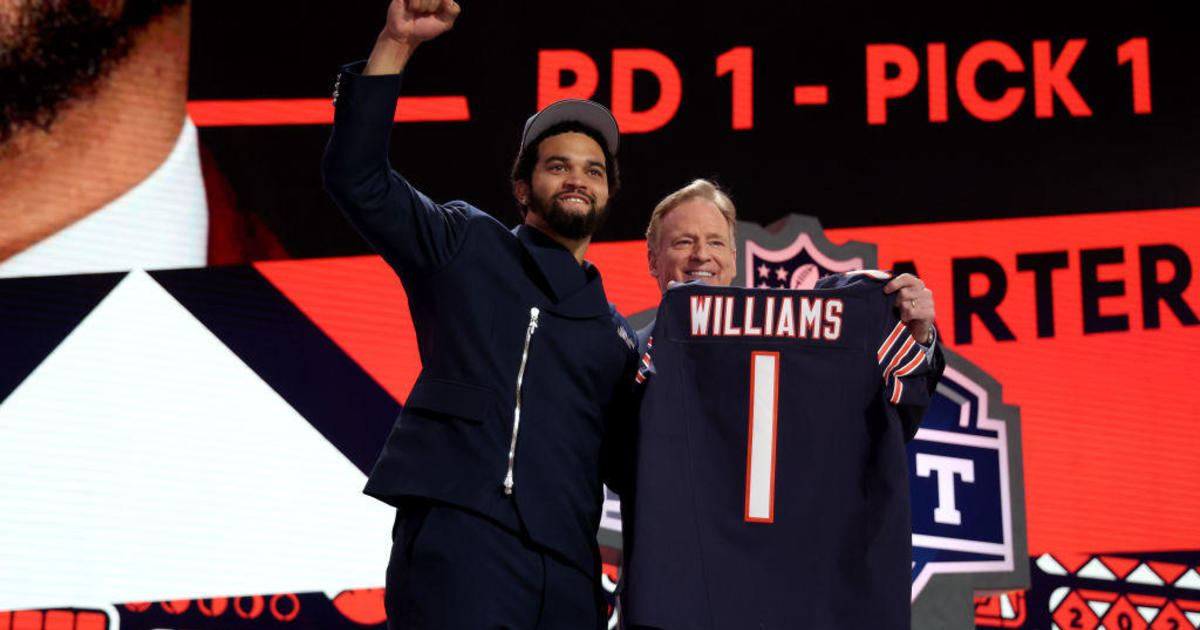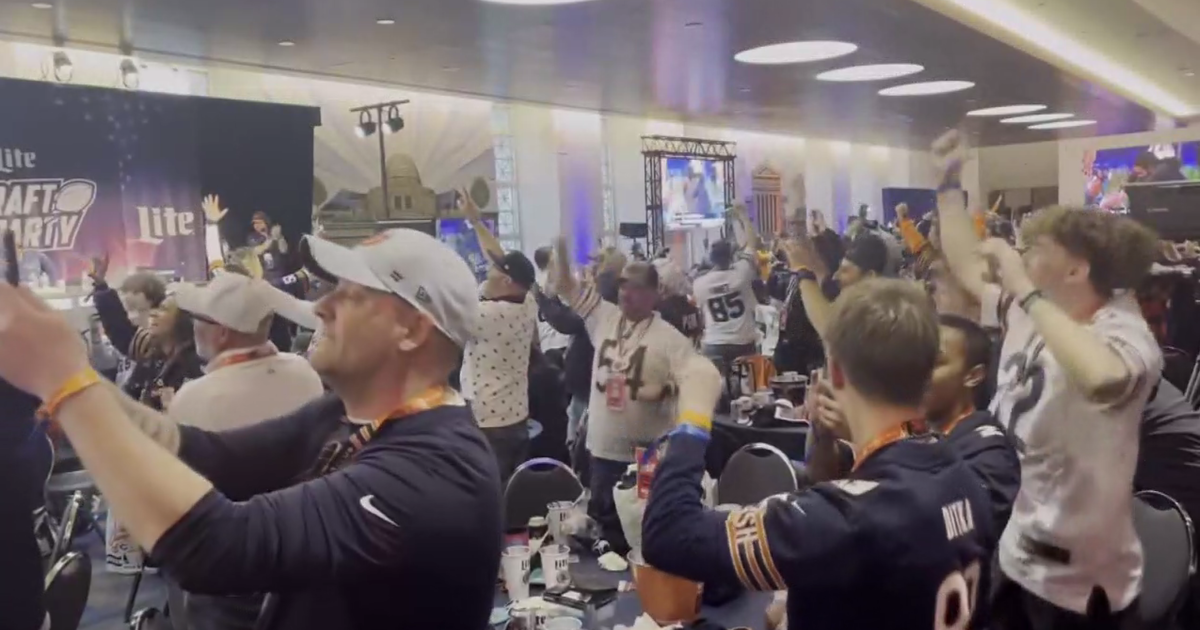Durkin: Impressions From Bears-Lions
By Dan Durkin--
(CBS) When you've been a part of the NFL for 27 seasons, as Bears coach John Fox has been, you develop soft skills outside of the requisite Xs and Os. One of those skills is dealing with the media.
Fox has mastered the art of globalizing his answers and not giving away specifics. However, after having a day to reflect upon his team's disappointing 37-34 overtime loss to the Lions in Detroit, he succinctly summed up the game.
"We had plenty of chances, whether it was offense, defense, special teams, coaching — all of our signatures were on it," Fox said Monday.
The offense left points on the field, the defense was dominated, special teams allowed a fake punt late in the game and the clock management down the stretch was questionable at best.
Set aside how poor the officiating was for a moment. Accept the fact that both teams benefited from bad calls and the hazy logic and mechanics that underpin the "process of the catch" rule.
When you boil down Sunday's game to its essential element, the Bears were beaten at the line of scrimmage on both sides of the football for the majority of the game.
When you can't provide clean pockets or a clear aiming point for your running game, your offense will stall. Yes, the Bears put up 34 points, but prior to scoring two fourth-quarter touchdowns to gain a 31-24 advantage, they scored only one touchdown on five red-zone trips. On the other four, they settled for a field goal three times and threw an interception on the other.
Through five games, the Bears have a 44.4 red-zone touchdown percentage, which ranks 25th in the league and 12th in the NFC. Last season, they ranked third in the league and second in the NFC. They simply aren't a good enough team to settle for field goals when they're that close to the end zone.
Both of the Bears' divisional losses have been one-possession games, and in both games, they settled for field goals or less more often than touchdowns in the red zone.
Part of the Bears' problem is they still lack an effective short-yardage running scheme. The Bears ran 21 plays inside the Lions' red zone -- 12 were passes, nine were designed runs. Of those nine runs, six went for two or fewer yards. The Bears have become reliant on rub, screen and quick out passes -- primarily targeting Eddie Royal -- in the red zone. Asking receivers to block on the perimeter or pass catchers to consistently break tackles in a confined area is an unsustainable plan.
Despite the Lions showing issues with defending perimeter runs, the Bears kept trying the inside zone-run scheme and had minimal success with it. Prior to Sunday's game, the Lions defense was allowing (on average) 126 rushing yards and 4.2 yards per attempt, yet they held the Bears to 91 yards on 31 carries for a 2.9 yard-per-carry average.
The Bears' offensive line got no movement along the line of scrimmage, and offensive coordinator Adam Gase didn't show the same creativity and diversity with his run calls that he had thus far.
One bright spot from Sunday's game was the successful return of top receiver Alshon Jeffery. Hamstring and calf injuries have cost him four games this season, but he was back to his dominant self, providing a downfield weapon the team had lacked.
Horizontal route combinations remain a staple of the Bears' game plans, but Jeffery brought the vertical element back. He was able to win in contested situations, and his red-zone touchdown on a skinny post showcased his catching radius and hand strength to pluck a 50-50 ball in between two defenders. He also had 49 yards on two catches to put the Bears in position to kick the game-tying field goal to send the game into overtime.
While it was impressive that the Bears were able to march 69 yards in three plays to tie the game at the end of regulation, it shouldn't have had to come down to that.
After shredding the Lions defense from the end of the third quarter into the fourth, the Bears' offense turtled, electing to run the ball three times with 2:42 left in the game. This strategy did force Detroit to burn all of its timeouts, but it also gave the ball back to its offense, which had its way with the Chicago defense all day.
Just as the Lions had struggled to defend the run, they've also struggled to run it. Coming into Sunday's game, they were dead last in the league with a 2.9 yards-per-carry average and 49 rushing yards per game. Their fortune reversed against the Bears, as they racked up 155 yards on 32 carries.
The Bears' defensive line was unable to hold the point against the run, and their second- and third-level tackling was sloppy, leading to unnecessary extra yardage.
Their pass rush was inconsistent and absent for long stretches of the game. Other than linebacker Pernell McPhee, the Bears didn't push the pocket and move Matthew Stafford off his launch point. As has been the case this season, when the rush unit doesn't get home, the coverage unit gets exposed.
Through six games, the Bears still don't have an interception by their secondary, which speaks to their lack of playmakers.
Slot cornerback Sherrick McManis had a particularly poor game. Early in the season, opposing offenses targeted the perimeter of the Bears defense for their chunk plays, but now they're going after McManis out of the slot. Receiver Lance Moore did most of the damage against McManis, who got turned around several times in coverage and took poor angles to the ball after it was caught.
With a bye week to reasses, the Bears must consider all options with their nickel and dime cornerbacks.
Defensive coordinator Vic Fangio had Tracy Porter travel with Calvin Johnson for portions of the game. But as the team started to give up more explosive gains, they went to more Cover-2 looks to keep a top on the defense. On the decisive play of the game, Stafford broke the pocket and heaved a deep ball to Johnson, who was then matched up with rookie safety Harold Jones-Quartey, the Bears' deep half defender on that side of the field, which is as lopsided as an individual matchup can get.
Considering the health of the team, the bye week comes at a good time for the Bears. However, losing a game in this manner will linger. Granted, the Lions weren't as bad as their record indicates, but the Bears had several chances to put them away, yet couldn't. They're now 2-4 and 0-2 in the division.
Dan Durkin covers the Bears for CBSChicago.com and is a frequent contributor to 670 The Score. Follow him on Twitter @djdurkin.



